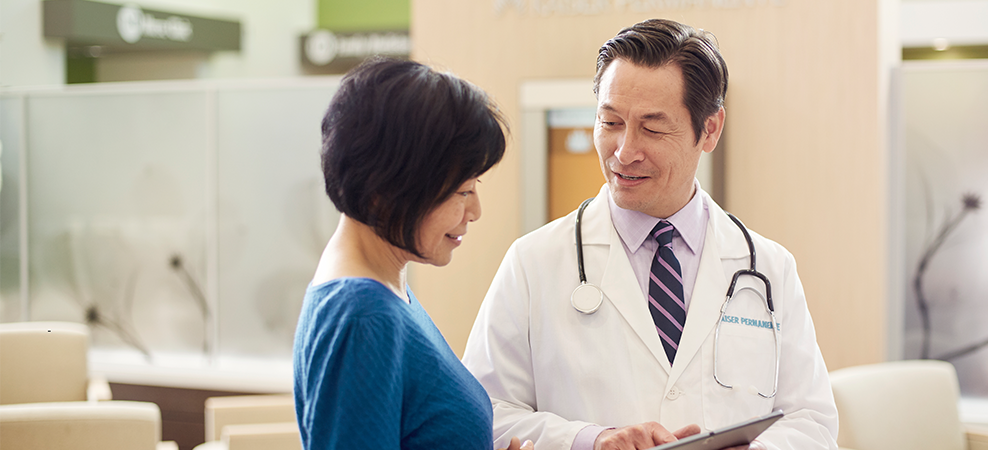Acupuncture
The Acupuncture Department at Kaiser Permanente San Francisco offers a component of traditional Chinese medicine that has been used for over 2,000 years to treat various health problems. It is a method of inserting fine needles into the body at specific points to help promote natural healing.
Address
4141 Geary Blvd. Suite #212
San Francisco CA 94118
Hours
8 – 5 p.m. Monday – Friday
Telephone
Appt/Advice: 415-833-4414
Chronic Pain Refill Line: 415-833-2622
French Campus Pharmacy: 415-833-3295
EasyFill (24-hour refill recorder): 415-833-3299
Hours: Monday-Friday 9-6 p.m. (closed on weekends and holidays)
* When closed, use the “Main Pharmacy” at 2238 Geary Blvd. After 10 p.m. and holidays, use “Inpatient Pharmacy” in the hospital at 2425 Geary Blvd.
What is Acupuncture?
Acupuncture is one component of traditional Chinese medicine that has been used for over 2,000 years to treat various health problems. It is a method of inserting fine needles into the body at specific points to help promote natural healing.
How Does Acupuncture Work?
Traditional Chinese medicine explains that energy called qi, (pronounced “chee”) and blood, circulate through pathways or meridians in the body. Meridians are different from the circulatory, nervous, or lymph systems. They are the pathways by which the qi and blood circulate through the body between the organs and tissues. An obstruction in the movement of energy flow through a meridian congests the flow of qi and blood, which can cause pain and other disorders. Needling specific acupuncture points unblocks the congestion and reestablishes the free flow of energy through the meridians.
From a Western scientific perspective, acupuncture stimulates the nervous system to release chemicals in the muscles, spinal cord, and brain, to change the experience of pain or to trigger the release of pain-relieving chemicals and hormones which influence the body’s own internal regulating system. The improved energy and biochemical balance produced by acupuncture stimulates the body’s natural healing abilities and promotes physical and emotional well-being.
The Acupuncture Procedure
Fine, sterile disposable needles are gently inserted through the skin into acupuncture points. Insertion of these slender needles goes unnoticed by some people. Others may feel a pinch followed by a sensation of tingling, numbness, aching, traveling warmth, or heaviness. The Chinese call this sensation deqi, which means “getting the qi.” Deqi usually passes quickly and indicates that the energy is starting to move. Some acupuncture points are more tender than others, and people have different pain tolerance levels, so some people will feel acupuncture doesn’t hurt at all, while others are more sensitive to it.
Sometimes the acupuncture points are connected to a gentle electrical stimulator to help relieve pain and spasm. Needles are left in place for 25 to 40 minutes while the patient lies quietly listening to music. Total treatment time takes one hour.
Are there any Side Effects?
There are usually no side effects after treatment and many people feel a sense of deep relaxation. Infrequently, one may feel mild disorientation, which resolves with brief rest. Dizziness or a heavy, tired feeling can be due to lack of food. It is advised to eat a small meal prior to treatment.
Occasionally after treatment, pain symptoms worsen or the patient experiences unusual fatigue. Flare-ups are a sign that the brain has stimulated the immune system to work on the problem and generally subside after one to two days followed by a reduction in pain level. Fatigue indicates either that the body is deficient of energy or that it has been holding a lot of tension.
Some people experience an increase in energy after acupuncture treatments. It is important to reserve this energy for healing rather than engaging in strenuous activity.
How To Get a Referral
Referrals should be made by a patient’s primary care physician.

